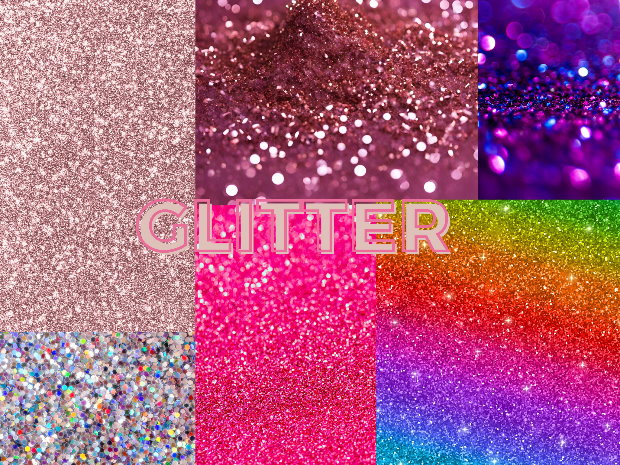Is Glitter Banned for Good?
Starting from October 17, 2023, the European Commission Regulation (EC) No 1907/2006 will officially come into effect, prohibiting products containing intentionally added microplastic or synthetic microparticles. These particles, collectively referred to as plastic particles, must not exceed 0.01% of the product's weight. The ban extends to granular plastic particles below 5mm and fibrous microplastics below 15mm with a length-to-diameter ratio exceeding 3.
The ban primarily affects specific types and uses of glitter, contingent on its composition, purpose, and whether it is loose, trapped, or attached to an object. Glitter made from biodegradable, natural, or water-soluble materials is permitted, as is glitter made from “inorganic” materials like metal and glass. Encased glitter, such as in snowglobes, and glitter beads and sequins designed for sewing are not subject to the ban.

In 2015, the FDA took a stand against microplastic beads in cleansers, exfoliators, and toothpaste to combat water pollution. Glitter is now following suit, with concerns raised about the environmental impact of thousands of glitter pieces accumulating in waters or soil after a single use.
Affected product categories & Deadlines:
| 1 | Substance or mixture |
October 17, 2023 |
| 2 |
Rinsable cosmetics, unless such product contains synthetic polymer microbeads |
October 17, 2027 |
| 3 |
Cleaners, waxes, polishes and air purifying products, unless such products contain microbeads |
October 17, 2028 |
| 4 |
Fertilizer products (fertilizer products not covered by Regulation (EU) 2019/1009) |
October 17, 2028 |
| 5 |
Agricultural and horticultural products |
October 17, 2028 |
| 6 |
No-rinse cosmetic products, unless such products contain microbeads |
October 17, 2029 |
| 7 |
Synthetic polymer microbeads for encapsulating fragrances |
October 17, 2029 |
| 8 |
Medical devices, unless these devices contain microbeads |
October 17, 2029 |
| 9 |
Plant protection products, fungicide products, and seeds treated with these products |
October 17, 2031 |
| 10 |
Fillers for synthetic sports surfaces |
October 17, 2031 |
| 11 |
Lip products, nail products, and makeup products, unless they contain microbeads |
October 17, 2035 |
Exempt plastic particles:
Plastic particles are not subject to regulatory control if they meet any of the following conditions:
• Natural polymers without chemical modification
• Biodegradable polymers
• Polymers with water solubility >2g/L
• Polymers that do not contain carbon atoms in their chemical structure
New Allergens to be Labelled for the EU
https://www.ni-hau.com.tw/news-detail/new-allergens-to-be-labelled-for-the-eu.htm
US FDA new MoCRA Regulation


